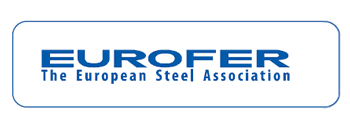Brussels, 29 May 2017 – CEOs representing nearly the entire European steel industry today co-signed a letter addressed to the governments of all EU member states. The letter calls on political leaders to “help preserve a sustainable and globally competitive European steel industry. In Europe we must be able to produce the innovative steels that underpin modern society – and that help reduce CO2 emissions.”

Speaking after the signing of the joint letter Axel Eggert, Director General of the European Steel Association (EUROFER) – which represents 100% of steel production in the EU – said, “The European steel industry is one of the most innovative in the world. Our CO2 mitigation technologies are world beating. However, the EU has a large, open economy – meaning that if the post-2020 reform of the EU’s Emissions Trading System (EU ETS) creates costs for even Europe’s best performing steel plants, we will find ourselves uncompetitive in the fierce global marketplace for steel.”
The letter highlights the specific costs of the EU ETS reform as it exists today. While the European Parliament produced a version that would go some way to limiting the impact of the EU ETS on European steel’s competitiveness, the European Council text provides no such protections.
Quoting the letter, Mr Eggert said, “Were the EU ETS directive to be adopted without some of the improvements requested by the European Parliament there would be a shortage of emissions allowances for our industry of around 35% by 2030. In addition, the sector will be even more exposed to the carbon cost pass-through in electricity prices. Other industry sectors under the EU ETS do not face these constraints to the same degree.”
The European steel industry appreciates that climate protection is a critical issue and supports the necessary measures to bring greenhouse gas emissions under control. However, the industry – as evidenced by the wide support from the sector’s leadership – feels obliged to highlight that these CO2 emissions reduction efforts must be conducted cost-effectively and with a mature regard to EU steel’s global competitiveness.
“Steel produced abroad can be up to 50% more CO2 intensive than the same product produced in Europe. Getting the EU ETS post-2020 reform right is therefore both a matter of jobs, growth and competitiveness, but also of making sure we do not simply export our CO2 outside the EU”, concluded Mr Eggert.
The joint open letter from 76 steel industry CEOs is available: here
Open Letter and translations
The Open Letter is available in English, Dutch, French, German, Hungarian, Italian, Polish, Romanian, Slovakian, Spanish. It can be found: here
About the European Steel Association (EUROFER)
EUROFER is located in Brussels and was founded in 1976. It represents the entirety of steel production in the European Union. EUROFER members are steel companies and national steel federations throughout the EU. The major steel companies and national steel federations in Switzerland and Turkey are associate members.
About the European steel industry
The European steel industry is a world leader in innovation and environmental sustainability. It has a turnover of around €170 billion and directly employs 320,000 highly-skilled people, producing on average 170 million tonnes of steel per year. More than 500 steel production sites across 22 EU Member States provide direct and indirect employment to millions more European citizens. Closely integrated with Europe’s manufacturing and construction industries, steel is the backbone for development, growth and employment in Europe.
Steel is the most versatile industrial material in the world. The thousands of different grades and types of steel developed by the industry make the modern world possible. Steel is 100% recyclable and therefore is a fundamental part of the circular economy. As a basic engineering material, steel is also an essential factor in the development and deployment of innovative, CO2-mitigating technologies, improving resource efficiency and fostering sustainable development in Europe.
